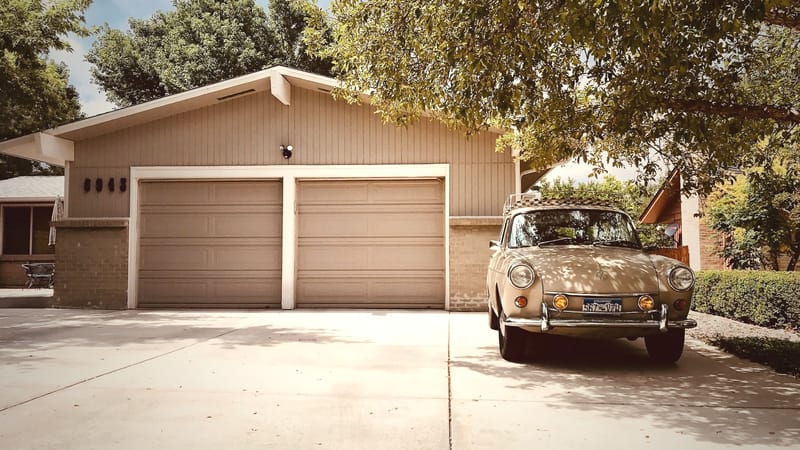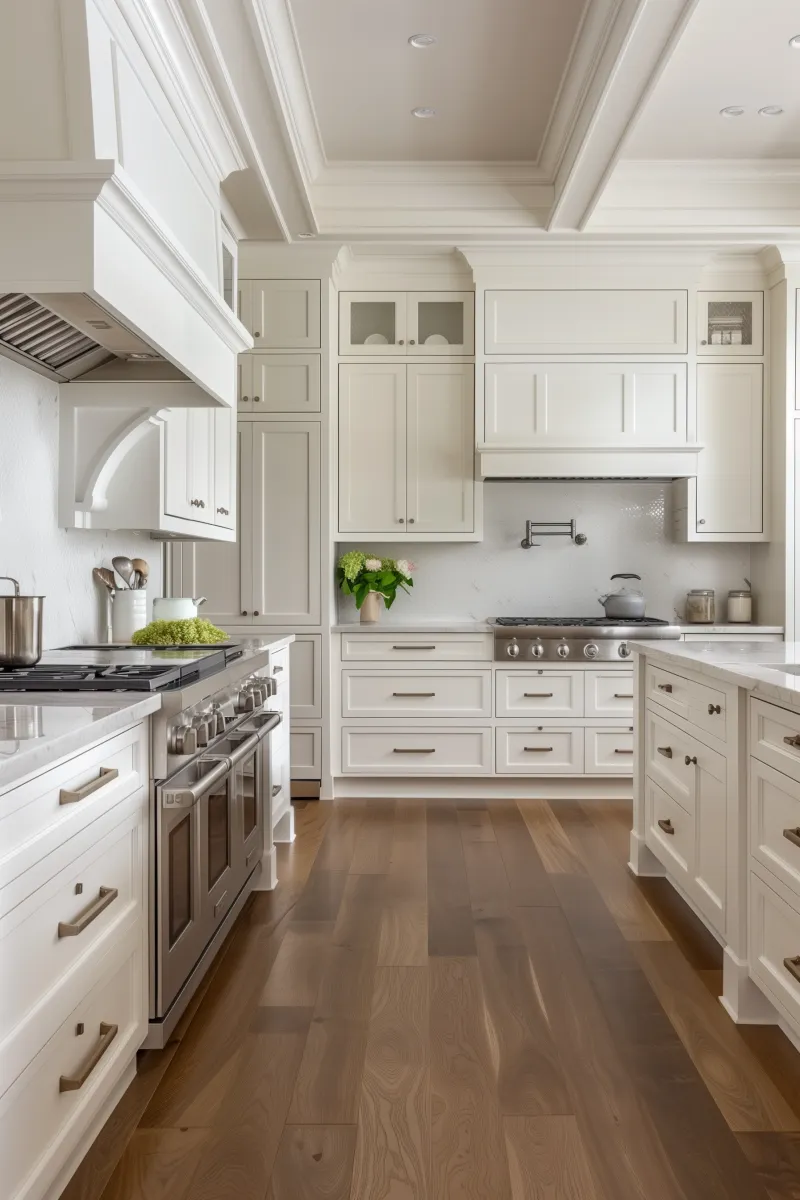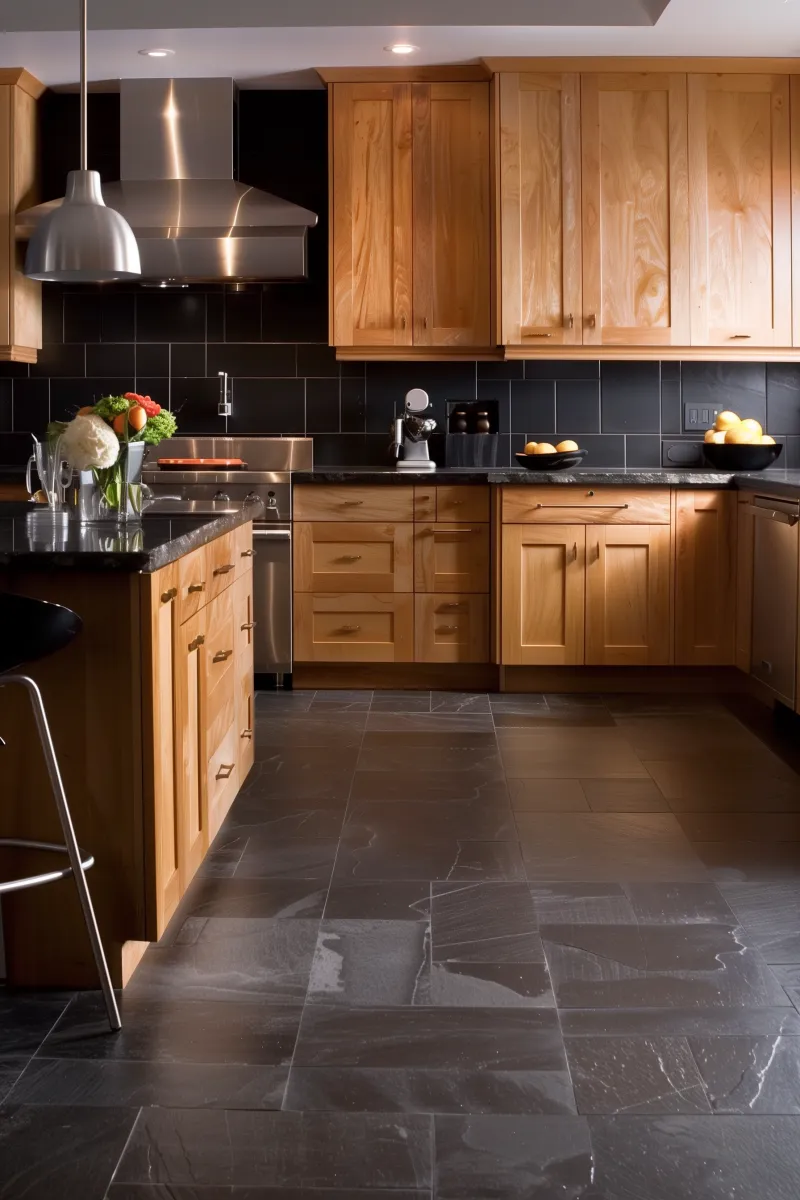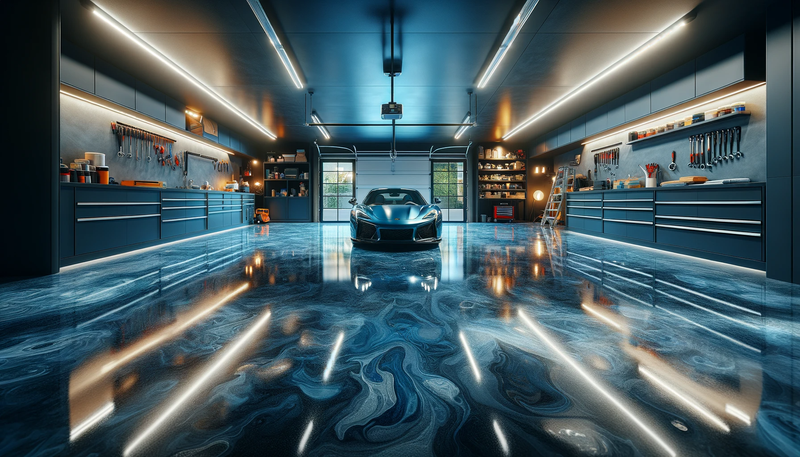Polyurea floor coating vs epoxy coatings is a tough choice depending on your needs. When considering coatings for your floors, the choice between epoxy and polyurea is significant, each offering unique advantages and disadvantages.
Polyurea Floor Coating vs Epoxy - which one is the ideal choice for you?
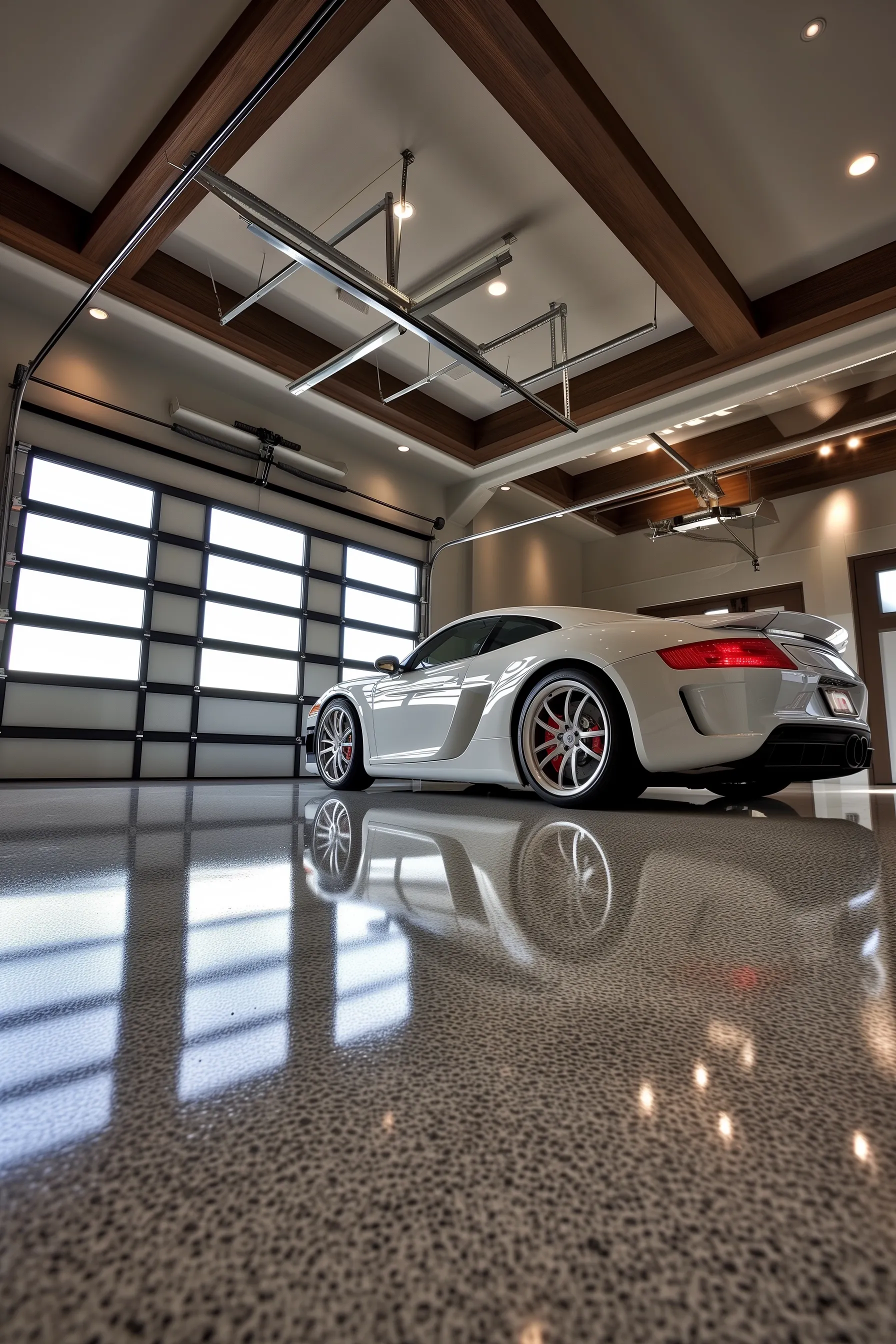
Deciding whether a polyurea or epoxy coating is better for your garage floor depends on several factors:
- Budget: Epoxy is generally more cost-effective. If budget is a primary concern, epoxy might be the right choice.
- Durability and Longevity: Polyurea offers greater durability and a longer lifespan. If you're seeking a long-term solution and are willing to invest more initially, polyurea could be preferable.
- Installation Time: Consider how quickly you need the floor to be usable. Polyurea cures faster than epoxy, making it suitable for time-sensitive projects.
- Environmental Conditions: Polyurea withstands a wider range of temperatures and is UV resistant, making it a better option for garages exposed to extreme conditions or direct sunlight.
- Maintenance: If you prefer a coating that requires less maintenance, polyurea has more chemical resistance and is more resistant to abrasions and physical impacts.
Your specific needs, including how you use the garage, local climate, and maintenance preferences, will guide your decision between these different types of coatings.
Now Let's Dive Into Some More Detail Of Polyurea Floor Coating vs Epoxy Floor Coatings!
We are running through polyurea floor coating vs epoxy coatings in more detail so you can make a better choice!
1. Polyurea Floor Coatings
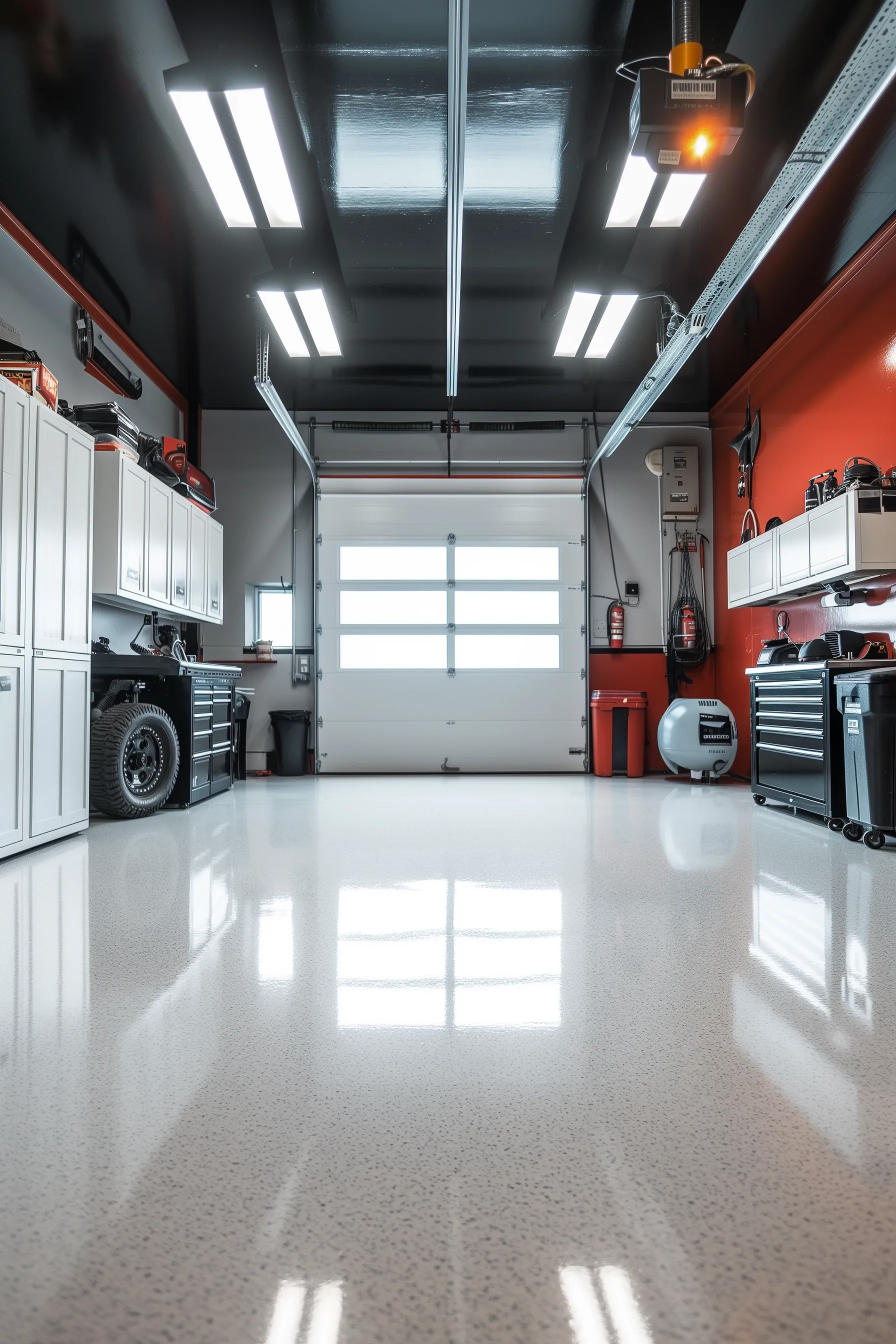
Polyurea floor coatings are a modern flooring solution that is popular for their exceptional qualities. They are synthesized through a chemical reaction, resulting in protective coatings that offer both flexibility and strength.
Known for their remarkable strength and versatility, polyurea coatings are formed by reacting an isocyanate component with a resin blend. This reaction creates a durable, flexible, and fast-curing substance.
Polyurea flooring has gained popularity for both industrial and residential applications, particularly for garage floors, due to its superior performance compared to traditional materials like epoxy.
Pros of Polyurea Coatings:
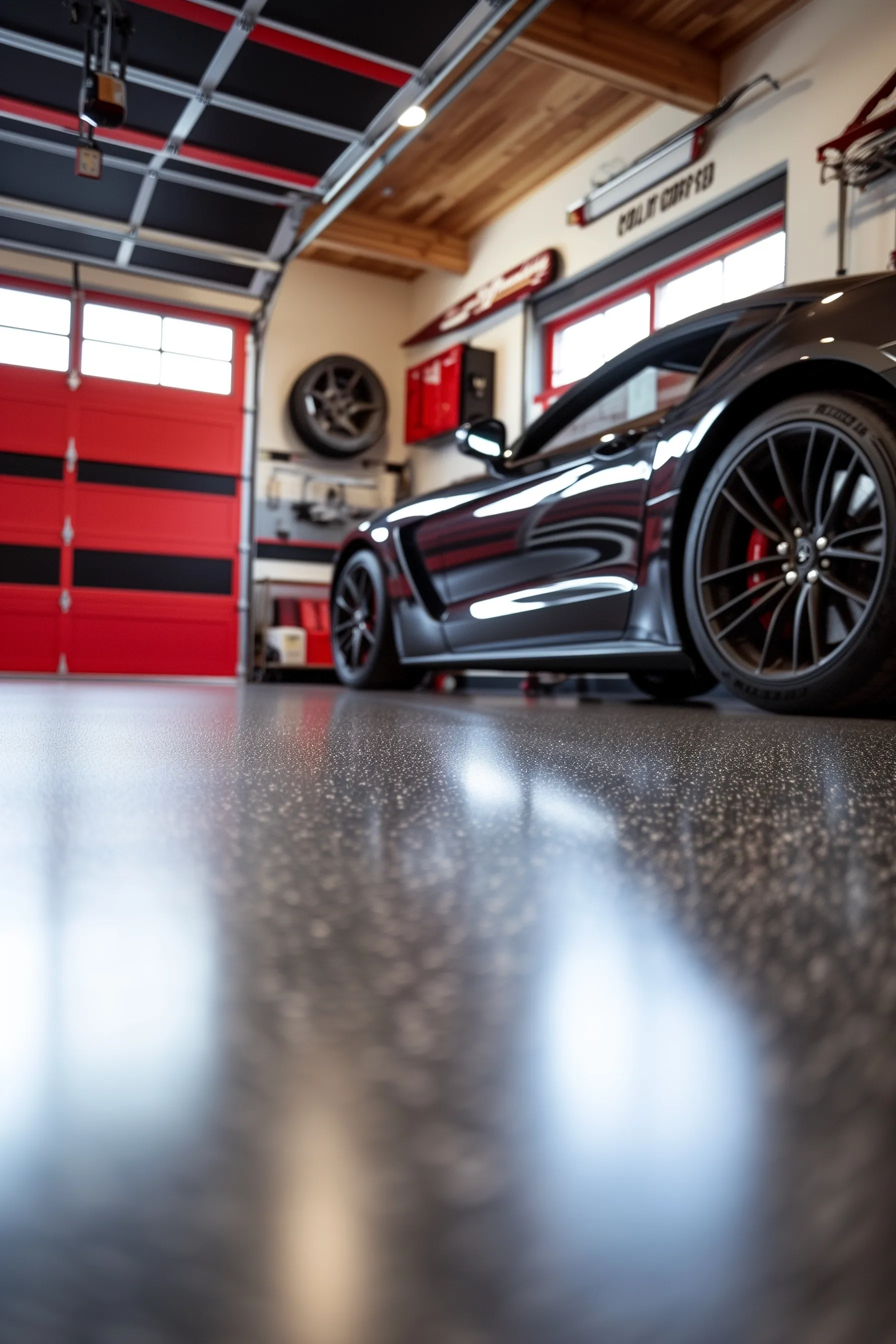
- Durability: Highly resistant to abrasion, impact, and chemicals.
- Fast Curing Time: Sets quickly, reducing downtime.
- UV Resistance: Maintains color without yellowing or fading.
- Temperature Tolerance: Effective in a wide range of temperatures, including cold temperatures.
- Waterproofing: Excellent moisture barrier properties, so it is less prone to water damage.
- Flexibility: Adapts to surface movement and temperature changes.
- Low Maintenance: Easy to clean and maintain.
Cons of Polyurea Coatings:
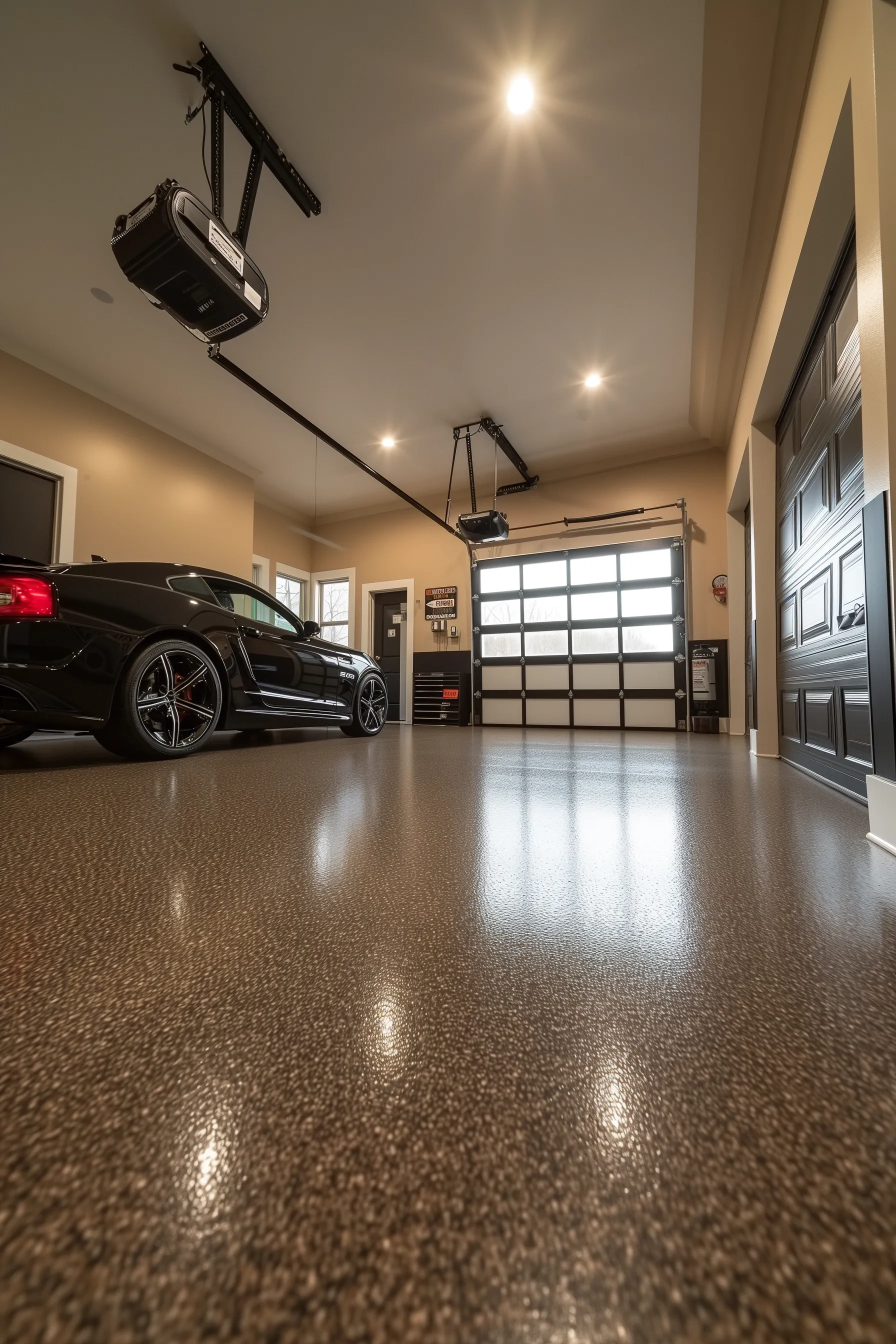
- Cost: Generally more expensive than epoxy and other traditional coatings.
- Professional Installation Required: Fast curing time requires a skilled application and you may need a professional contractor.
- Sensitivity to Preparation: Requires proper surface preparation for optimal adhesion.
In summary, polyurea floor coatings are an excellent choice for environments requiring robust, long-lasting protection, albeit with a higher initial investment. Their rapid curing time and resilience make them a preferred choice in settings where minimal interruption and long-term durability are crucial. It is great as a polyurea concrete coating.
2. Epoxy Floor Coatings
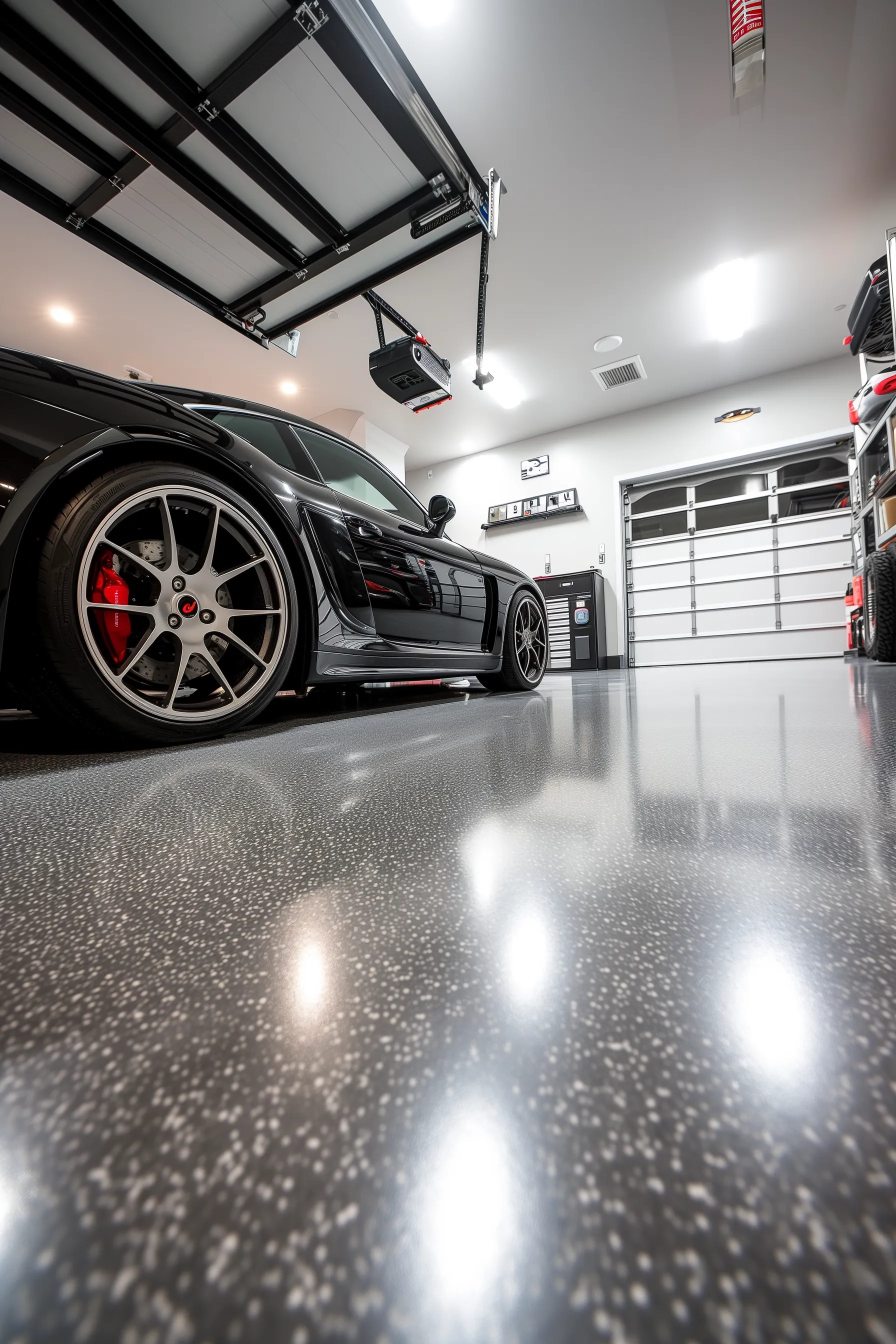
Epoxy flooring is a popular choice for both residential and commercial flooring due to its resilience and aesthetic versatility. Composed of two main components – an epoxy resin and a hardener – when mixed, they undergo a chemical reaction that creates a rigid plastic material. This makes it a very popular choice for concrete garage floors or concrete floor coatings.
This material is known for being impact resistant and its ability to adhere to a variety of surfaces, including concrete surfaces.
Pros of Epoxy Floor Coatings:
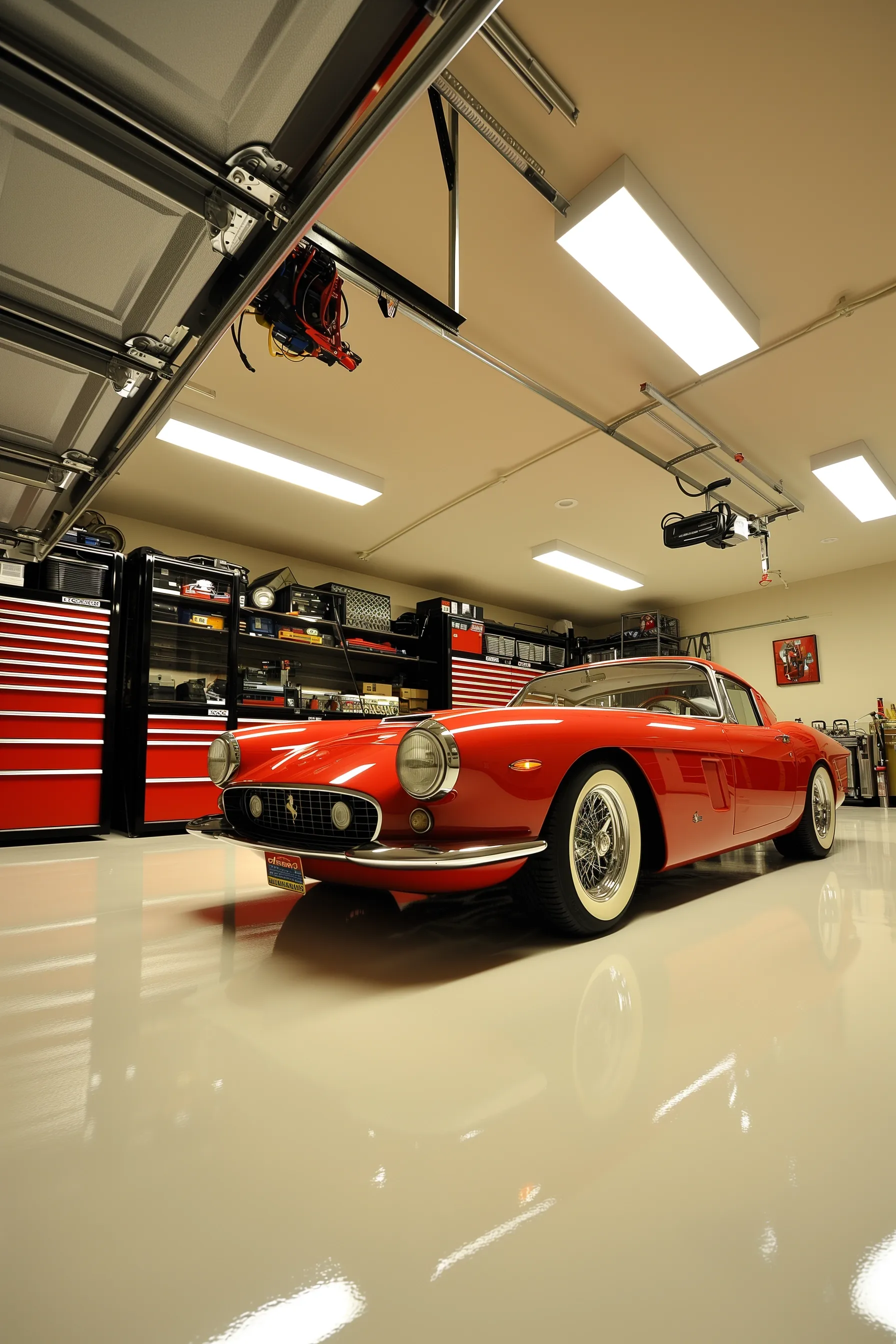
- Durability: Resistant to wear, making it ideal for frequent foot traffic areas.
- Affordability: Generally less expensive than polyurea coatings.
- Variety of Designs: Available in multiple colors and patterns.
- Chemical Resistant: Offers good resistance to chemicals and stains.
- Ease of Maintenance: Easy to clean and maintain.
Cons of Epoxy Floor Coatings:
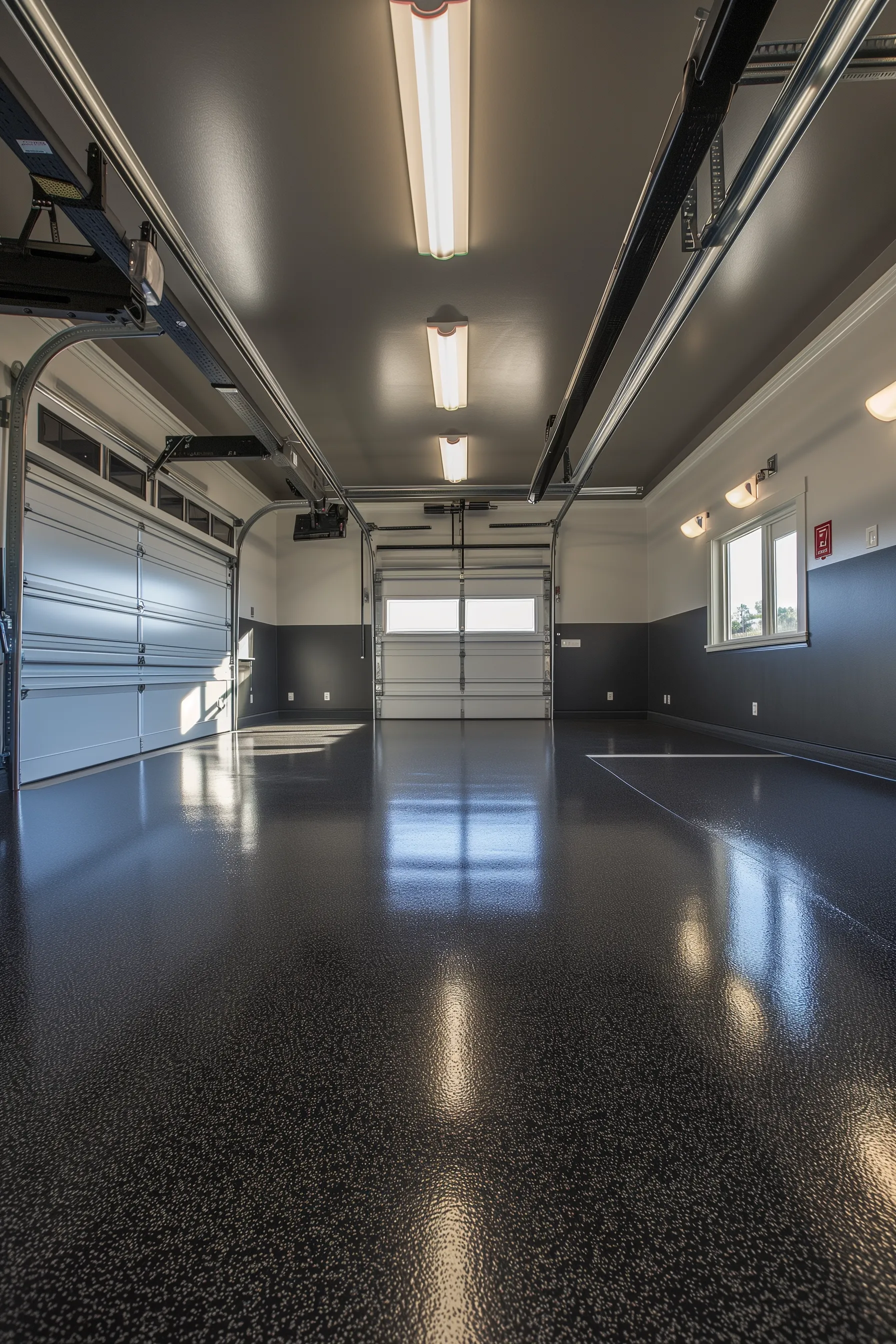
- Longer Curing Time: It takes longer to fully cure compared to polyurea.
- Slippery When Wet: Can be slippery, especially if wet.
- Not UV Resistant: Can yellow or fade when exposed to sunlight.
- Brittle and Prone to Cracks: Less flexible, which can lead to cracking over time.
- VOC Emissions: Can emit volatile organic compounds during application.
In summary, Epoxy coatings are the best choice for those seeking an affordable, durable material, and aesthetically pleasing floor solution, particularly in indoor settings where UV exposure is minimal.
3. Polyaspartic floor coatings
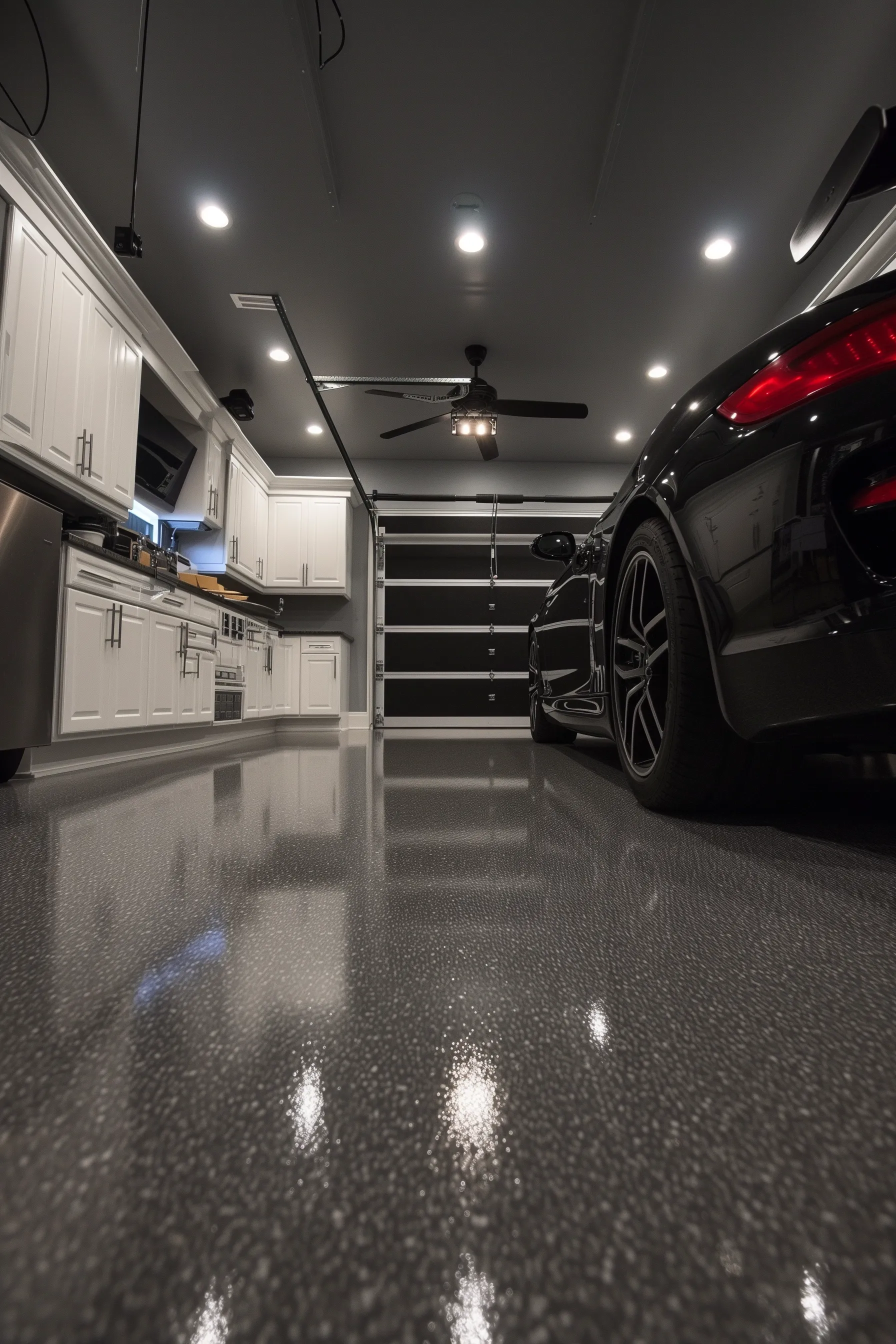
I am including polyaspartic floor coatings in this comparison as it is a type of polyurea and has gained popularity in the flooring industry. Polyaspartic coatings are similar to polyurea in terms of their chemical composition but have some distinct properties.
Polyaspartic coatings cure rapidly, which can be beneficial in time-sensitive projects as they allow for quicker return to service. They are known for their high resistance to abrasion, UV stability (which prevents yellowing over time), and ability to withstand different environmental conditions. Additionally, polyaspartic coatings can be applied at a wide range of temperature variations, making them versatile for various climates.
This material is known for its ability to adhere to a variety of surfaces, including concrete surfaces.
Pros of Polyaspartic Floor Coatings:
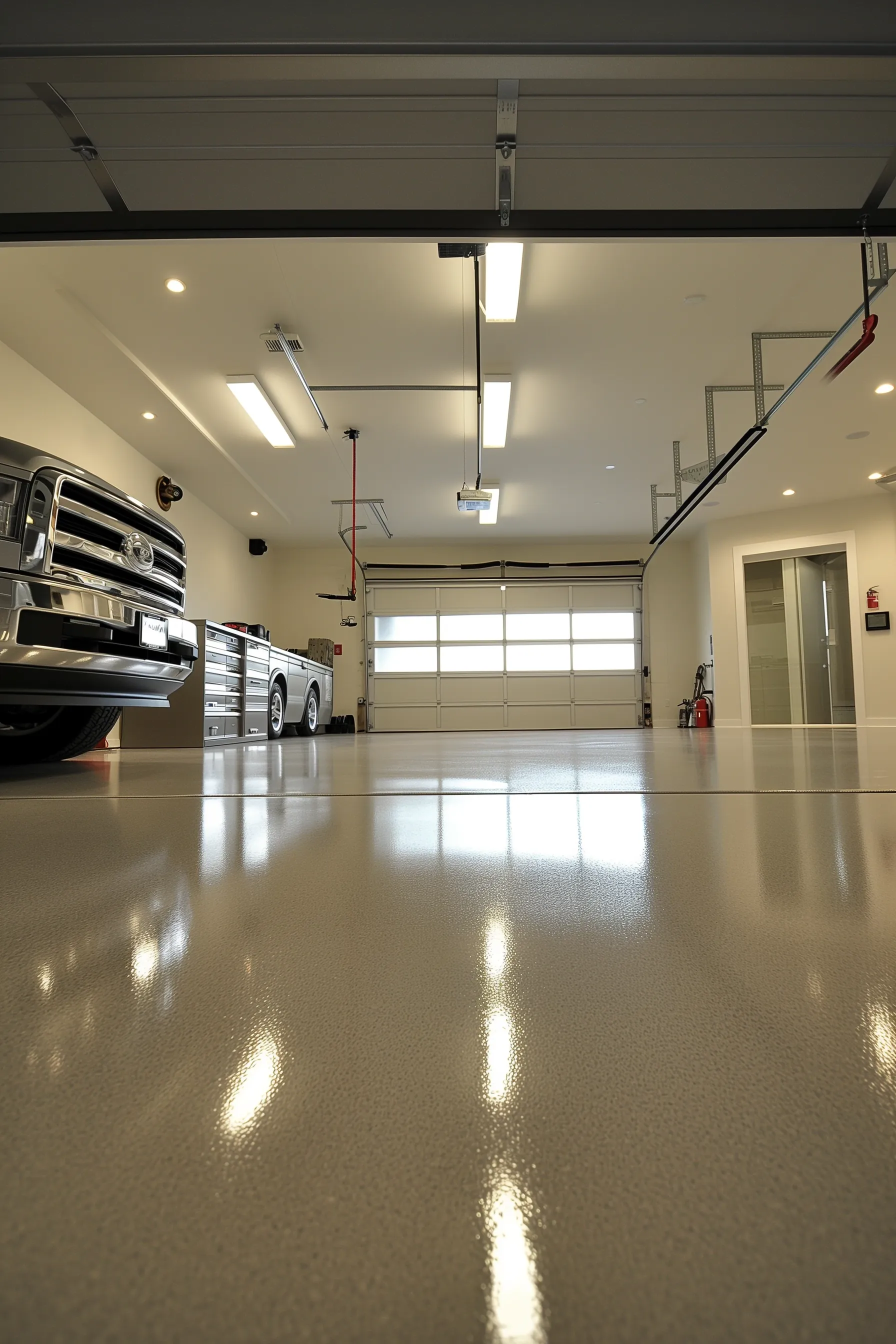
- Rapid Curing: Cures faster than traditional coatings, reducing downtime.
- UV Stability: Resistant to yellowing and fading in sunlight.
- Durability: Highly resistant to abrasion, chemicals, and stains.
- Temperature Versatility: Can be applied in a wide range of temperatures, including cold climates.
- Aesthetic Flexibility: Available in various colors and finishes.
- Moisture Tolerance: Performs well in humid conditions.
Cons of Polyaspartic Floor Coatings:
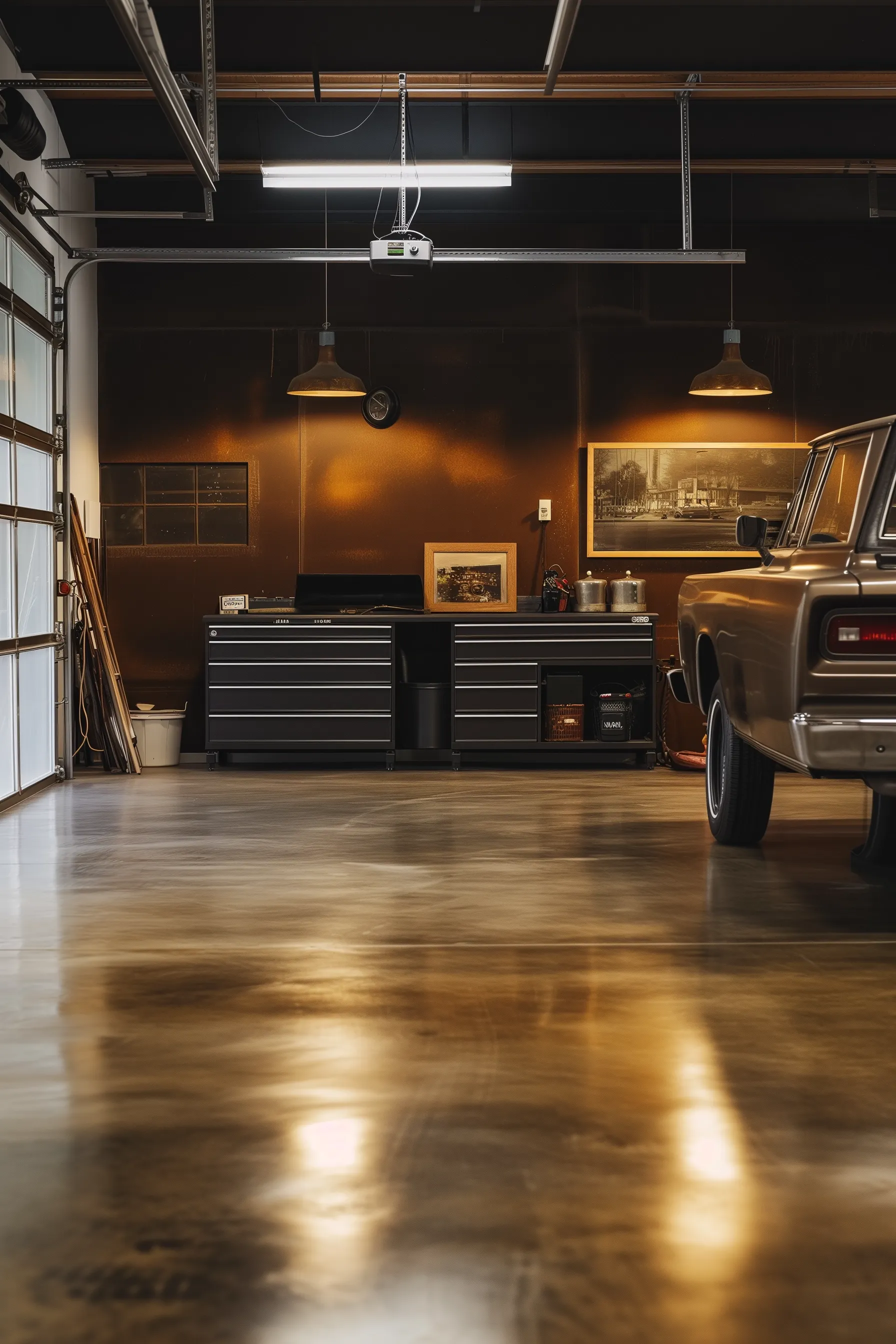
- Cost: Typically more expensive than epoxy.
- Application Window: Fast curing time requires a quick and precise application.
- Limited Thickness: Thicker layers may lead to issues with curing.
- Sensitivity to Conditions: Requires careful preparation and application to avoid bubbles or blisters.
We hope this polyurea floor coating vs epoxy coatings has made your decision a little easier!
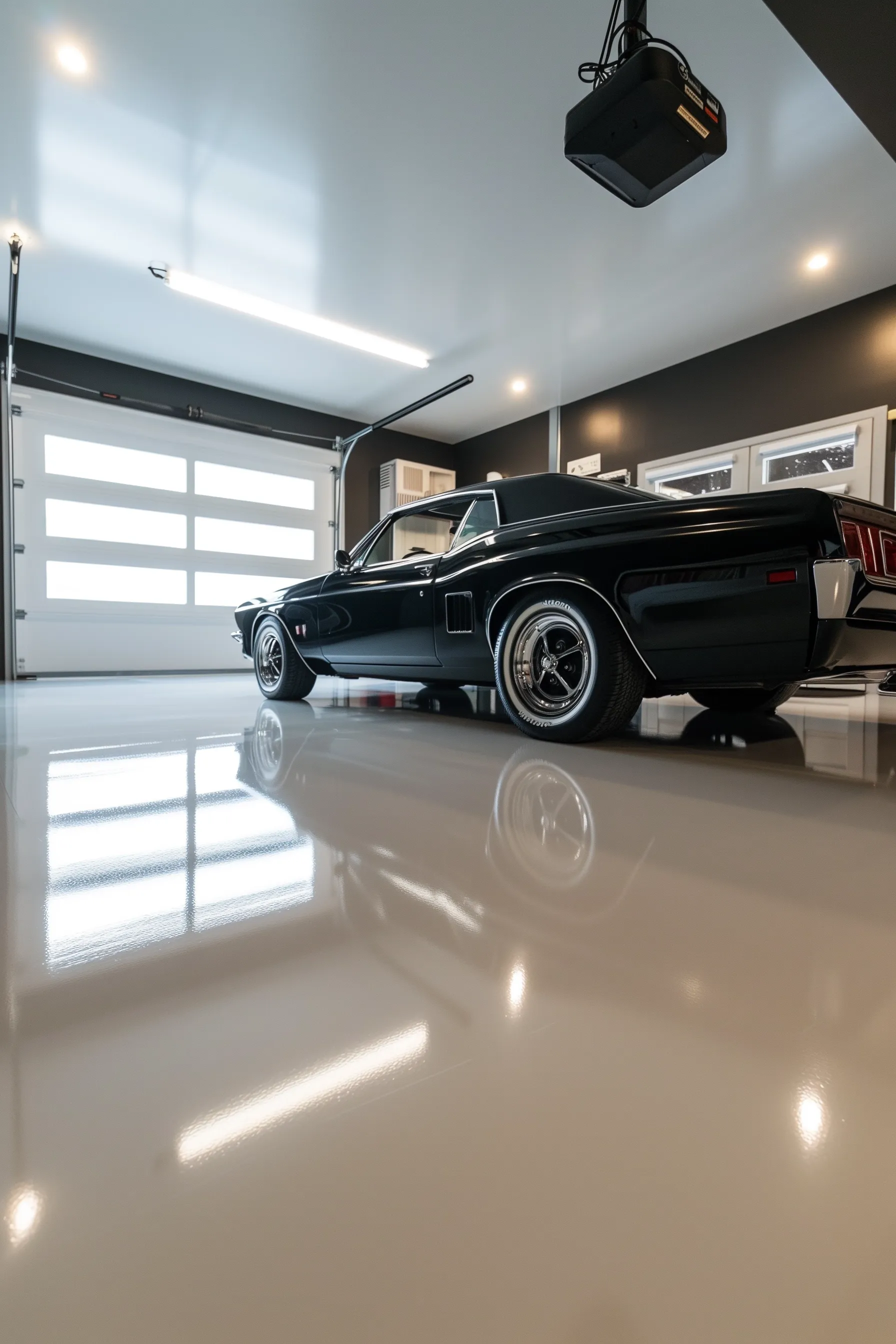
When choosing between polyurea and epoxy floor coatings, it's crucial to consider your specific needs and circumstances. Polyurea offers exceptional durability, rapid curing, UV resistance, and flexibility, making it ideal for high-performance, long-lasting applications, albeit at a higher cost.
Epoxy, on the other hand, is more budget-friendly, offers a variety of design options, and is stain and chemical resistant, but it comes with a longer curing time, potential for slipperiness, and less resistance to UV rays and physical stress.
The best solution should align with your priorities, whether they're cost, durability, appearance, or maintenance requirements, ensuring the selected coating meets your space's functional and aesthetic needs.
By weighing the pros and cons of each, you can select the best option that not only enhances your floor but also aligns with your everyday needs.

